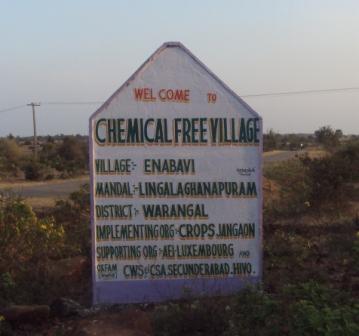gencap
Gender and Climate Adaptation Policy
Making climate and development policies more gender responsive
Home > Policy & Practices > Organic Agriculture is resilient but more labourious
Organic Agriculture is resilient but more labourious
Practice

Uttarakhand: The government’s National Bank for Agriculture and Rural Development (NABARD) is promoting organic agriculture in various ways. In 14 villages of Tarikhet block, organic practices for off season vegetable cultivation are being facilitated through forming farmers’ groups (including women farmers’ groups), and building their technical capacities on farm organic inputs, integrated pest management, organic certification and water management and setting up of rainwater harvesting tanks.
Organic agriculture is also promoted by grassroots organizations in Gorakhpur, Eastern Uttar Pradesh and in the Sunderbans in West Bengal as part of integrated agriculture
From a Gender Lens
Organic farming ensures additional food security for both women and men but at the same time it demands more manual labour and time from women and increases their workload. Women collect raw material for organic manure and bio-pesticides, process these and shoulder the larger workload of applying it in the field. Women also have less access to information/knowledge from extension workers. They still do not access, own or control productive assets like land, credit, technology and tools. They still do not become trainers in extension services, nor sit on decision-making bodies like agriculture primary societies or market boards.
Policy Options
Government programmes should promote labour-reduction measures like group-based manufacturing of vermincompost or bio-pesticides. This will enable some women to take this on as a livelihood option (rural women entrepreneurship) and give a choice to women to buy organic compost.
Organic manure should be available from government shops and with Gram Panchayats; it should be accessible to women farmers’ clubs/groups by the village Panchayat and the block.
Daily regional weather-related information should be available to women farmers over mobile-phones through discounted subscription.
Rain gauges should be provided to women groups so that they can get more precise information on when to sow or harvest since more women than men undertake these two activities. They should be made weather literate and be helped through panchayats to link local rain data with weather stations so that local variations can be addressed through weather information.
Agricultural extension services through KVKs and information on organic practices should be strengthened and expanded to reach women through women’s groups/women farmers’ groups.
Further Reading
1. MP Organic Farming Policy can be downloaded from: http://www.mpkrishi.org/krishinet/hindisite/pdfs/Javikneeti_Eng.pdf

